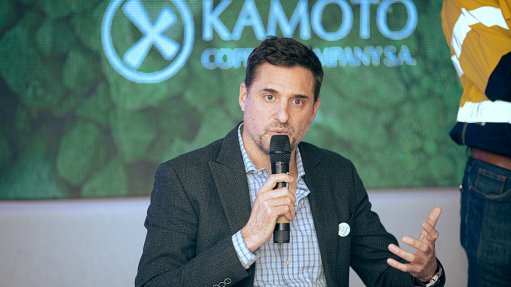
Head of Glencore Copper Africa Clint Donkin
Large-scale industrial copper and cobalt producers in the Lualaba province of the Democratic Republic of Congo (DRC), Kamoto Copper Company (KCC) and Mutanda Mining (Mumi), hosted a community town hall in Kolwezi on June 29, to promote dialogue with local stakeholders.
Diversified miner Glencore – owner of the operations of both KCC and Mumi – recognises that robust and respectful engagement with stakeholders is essential for its industrial assets to maintain their licence to operate.
Local employment, social infrastructure investments, the support of local businesses, health, safety, environment, social performance and human rights performance were key topics discussed during the town hall.
“We’re proud of the open, constructive, and ongoing engagement with stakeholders at our KCC and Mumi operations. We aim to build relationships with local communities and decision-making authorities to share information about our activities and to help us understand their views and address concerns they may have,” states head of Glencore Copper Africa Clint Donkin.
“This was an important event for us to listen to and share ideas with stakeholders and reaffirm our commitment to addressing potential grievances, claims and concerns that were not captured through our grievance mechanism.”
“At any given time, there are several streams of activity under way to encourage dialogue with our local stakeholders.
“These may range from the Kolwezi Agropastoral Fair to immunisation and malaria-control programmes and school construction or retraining of artisanal miners to support sustainable, alternative livelihoods efforts in collaboration with government institutions and the Fair Cobalt Alliance,” adds Mumi CEO Christian Luhembwe.
He notes that the community town hall meeting is a vital forum to foster an open, trusted and constructive dialogue.
“It gives us an opportunity to give an update on planned and ongoing community activities. But more importantly, it gives our local community stakeholders, including traditional authorities and members of the public, an opportunity to raise concerns and highlight projects or programmes that were successful.
“This is a healthy way to learn from the past as well as build on successes as we look to the future,” Luhembwe concludes.